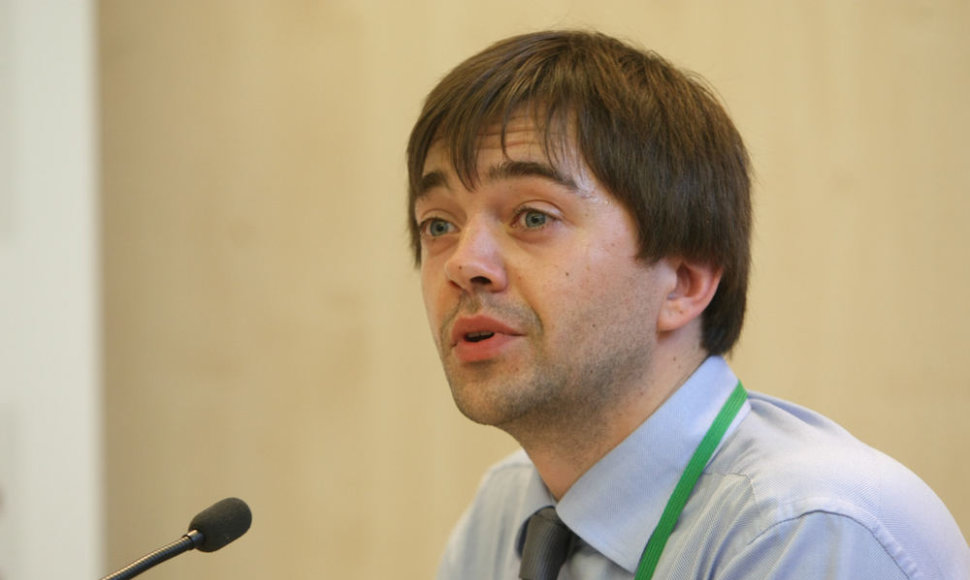"Intensifying cooperation rhetoric is in no way an expression of great love and brotherhood towards Lithuania. It's a clear signal that they want some EU backup amid fewer opportunities in Russia and growing pressure from the Kremlin," the lecturer from the Institute of International Relations and Political Science at Vilnius University told BNS on Thursday.
As an example, Jurkonis mentioned Belarus' procrastination to confirm a procedure for border residents to be able to enter Lithuania without visas and travel up to 50 kilometers from the border.
"We need to realize that we are talking not about Belarusian-Lithuanian relations and simpler cooperation between Belarus and Lithuania, but about clear economic interests of the Belarusian regime," the expert said.
Jurkonis says that "the upcoming Lithuanian and later Latvian EU Presidency is a great opportunity to manipulate neighbors."
Lithuanian Prime Minister Algirdas Butkevičius, who met with the Prime Minister of Belarus Mikhail Myasnikovich in the Lithuanian port of Klaipėda on Wednesday, expects a thaw in Minsk's relations with the European Union and says that the Lithuanian EU Presidency in the second half of this year will contribute to that.
According to Butkevičius, the Belarusian prime minister, currently visiting Klaipėda, could be also invited to the forthcoming EU Eastern Partnership in November in Vilnius.
In Jurkonis' words, the big question regarding the summit is not the Belarusian prime minister but Belarusian Minister of Foreign Affairs Vladimir Makey who is on the EU's blacklist.
Jurkonis believes that the invitation of Belarusian representatives will be "a challenge to EU diplomacy" which will have to "keep its principled position on the violation of human rights, political prisoners, media restrictions in Belarus and at the same time clearly show that Europe is open to Belarusian people and not the Belarusian regime."
"Obviously, Belarus will be represented by an official person at the summit, but at the same time it would be possible to find space for a speech by Miklos Harazsti, UN Special Rapporteur on the situation of human rights in Belarus. It would help to balance the position by clearly showing that human rights and democracy issues remain on the Minsk-Brussels agenda," the political scientist said.
Jurkonis believes that a special meeting on the human rights situation in Belarus, attended by heads of leading global human rights organizations, could be held during the summit in late November. They could also draft recommendations on human rights and civil society issues.
"And the conclusions could be handed over to official representatives of Minsk who will come," Jurkonis said.












